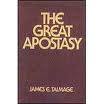Over the past few years, I have heard several Christians I know utter statements such as, “I need to find out what job God wills for me to have.” or “I’m praying to find out who God wills for me to marry.” These statements are from people who believe that God has a “Perfect Will” for certain aspects of their lives, e.g., what job they should have, whom they should date or marry, or where they should live. God’s Perfect Will is contrasted with His Permissive Will, i.e., that which falls outside of what He Perfectly Wills for us, but which He permits to happen. God’s Perfect Will is seen as the goal for Christians, and finding it and living within it lead to blessings, while not seeking it or finding it leads to living inside God’s Permissive Will and missing out on blessings.
How realistic is this viewpoint? Does God have a Perfect Will for aspects of our lives such as the jobs we hold and the person we marry? A couple of months ago I heard a wonderful podcast by Matthew Gallatin on Ancient Faith Radio where he shared a story that illustrates a serious challenge with the idea of God having a Perfect Will versus a Permissive Will.
John is a 24 year old Christian, and Jill is a 23 year old Christian. God’s Perfect Will is for them is to meet, fall in love, marry one another, and raise a beautiful family together. After meeting and going through 2 years of courtship, they fall in love, John proposes to Jill, and she happily accepts. They are both excited for their future and set their wedding date. When the big day comes, John waits at the altar while beautiful music plays. However, while sitting in the dressing room, Jill gets cold feet and changes her mind. She secretly dashes out the back door of the Church and catches the next flight to Las Vegas where she starts a new life. She walks away from her Christian faith, meets Jack, a casino owner, and marries him. She spends the rest of her life in an unhappy marriage with Jack. Eventually, realizing that Jill is never returning to him, John moves on and marries a very nice Christian girl named Tammy.
God’s Perfect Will was for John and Jill to marry and raise a family together. However, Jill chose to rebel against God and follow another path, living her life outside of God’s Perfect Will and inside His Permissive Will. As a result, she missed out on the blessings God had prepared for her. But where does this leave John? John was seeking God’s Perfect Will for his life, and he found it in Jill. He made the right decisions, asked her to marry him, and waited for her at the altar. However, though no fault of his own, John is forced to live outside of God’s Perfect Will and inside His Permissive Will. Because of Jill’s decision, he will now spend the rest of his married life in God’s Permissive Will, and he too will miss out on the blessings that flow from walking in God’s Perfect Will in relation to his marriage.
Does this seem right? Should John, who is seeking to live His life and follow God, be forced to live the rest of his life outside of God’s Perfect Will simply because Jill chose to rebel? I would suggest not, especially given the fact that God has promised us that “…all things work together for good to those who love God…” John loved God and was seeking His Perfect Will, so God would not hold out blessing him simply because Jill chose to rebel. That makes absolutely no sense.
So what is God’s Will for our lives? Bill has addressed this in a previous blog post here. I will just add my thoughts that I believe God’s Will for us is pretty well summed up in Jesus’ High Priestly prayer in John 17:21-23:
That they all may be one, as You, Father, are in Me, and I in You; that they also may be one in Us, that the world may believe that You sent Me. And the glory which You gave Me I have given them, that they may be one just as We are one: I in them, and You in Me; that they may be made perfect in one, and that the world may know that You have sent Me, and have loved them as You have loved Me.
God wants us to be one with one another and one with the Holy Trinity. He wants us! That’s all… nothing more… nothing less.








